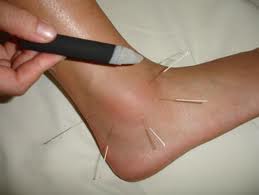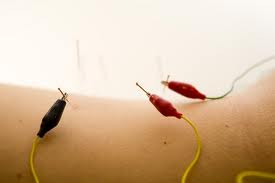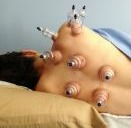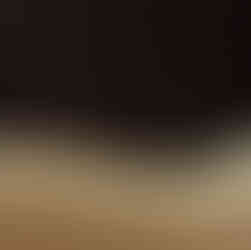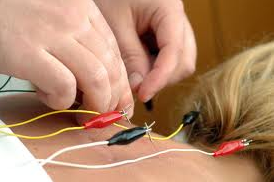FAQ's about getting Acupuncture Treatment
- Aug 7, 2024
- 14 min read
Updated: Jan 16, 2025
Seeking Acupuncture treatment is new for a lot of people. Here are the most common questions I get asked when I tell people I am an Acupuncturist.
How Does Acupuncture Work?
This is by far the number one question I get asked. To be honest it is not a straight forward answer as there are a lot of elements to consider.
The good thing is that over the last 10-15 years science has made great progress to measure and research acupuncture. We now understand most of what occurs under the needle and it's influence's on the body. For more information on what is known about acupuncture I have put together an article: https://www.acupuncturechristchurch.com/single-post/how-does-acupuncture-work
However, Science is still a long at off from fully comprehending the wonders of the human body. As in all areas of medicine there are still many elements that lack full understanding. This is in part due to differences in research motivation and funding across all the different cultures and styles of medicine, understanding the mechanisms of disease, variances between individuals and gaps in technology.
In my practice I try to use the best of what is known to work in research, in combination with experience gathered working with individuals and other practitioners using both traditional Chinese medicine and health science principles over the last 20 years.
You are always welcome to ask me questions about treatment approach and what the acupuncture is aiming to do in your treatment at any time.
What Can Acupuncture Treat?
World Health Organization recognizes TCM acupuncture as an effective natural treatment option for many common health conditions.
See the Acupuncture Evidence project for more info or WHO website for a comprehensive list.
https://www.acupuncture.org.au/resources/publications/the-acupuncture-evidence-project
https://www.who.int/publications/i/item/978-92-4-001688-0
Common problems that I tend to see through my clinic are:
Muscle tension, all types of pain conditions, injury, stress, anxiety, hay-fever, fertility, period pain, headaches, post viral fatigue and digestive problems.
However there is so much more that a Traditional Chinese Medicine trained acupuncturist such as myself can work with.
If you are looking for information on how Acupuncture may be able to help with your specific condition, please see my other posts on:
If you are keen to find out more if Acupuncture can help you with your specific health concern, please feel welcome to call the clinic or email me for more information.
Does Acupuncture Hurt?
Receiving Acupuncture for the first time can seem daunting. Everyone has an opinion about needles, so it is not uncommon to worry about what might happen during a session. Therefore I have put together some info that might help ease the apprehension about trying acupuncture.

To answer the question - Does it hurt? A number of areas need to be explored.
Firstly, Unlike injections, acupuncture needles are not hollow and are not intended to go into blood vessels which have protective pain receptors around them.
In comparison, Traditional Chinese Medicine Acupuncture needles have a much smaller diameter and we aim to avoid blood vessels and nerves.
The needle does have a momentary prickle as it goes through the skin. However, most people are able to be distracted enough that nothing is felt. Once the needle is in place the sensation of Acupuncture is often described as dull, pulling, tingling, weird, or simply nothing is felt at all.
It is also important to note that relaxation is meant to be part of the treatment, as we do not heal well when we are in pain. The Acupuncture table is not something to grin, bare and be stoic about. Your feedback to guide the practitioner away from pain is important. With all this considered Acupuncture should be comfortable to receive.
There are exceptions, "Dry Needling" a term used for needling into areas of tight muscle or scar tissue are often not as comfortable as meridian based acupuncture points. (see FAQ on Dry Needling vs Acupuncture for more info). Some areas of the body can be more sensitive than others, and pre-existing stress and pain conditions may also play a part of sensations generated.
Always remember you have choice. Your communication about your ongoing comfort is really important to feedback. Your practitioner can then guide you as with recommendations and options away from pain sites as needed to suit your condition.
Please also be aware that despite best intentions I cannot guarantee a pain free experience and there can be side effects from acupuncture. Even if no pain is initially felt, acupuncture can leave mild bruises or may temporarily worsen your condition.
If you are unsure at any stage, do let me know, I have lots of experience, even with self professed 'needle phobes'. The intention is to work at your pace one needle at a time. In most cases once a session is completed clients report loving the effect so much they can't wait to come back.
If the thought of needles or comfort levels change at any time during a session we can always change tact and use other treatment options such as cupping or tuning forks.
Lastly, for some Acupuncture may not be the best approach, and that's ok too.
Where do the needles go?
The Holistic models of Traditional Chinese Medicine are very different from a Allopathic/Western Medicine approach.
From a western perspective it would make sense that the site of the problem is where the needles are likely to go. In an pain and injury situation this is mostly the case.
However, if the area is too acute or painful to needle locally an acupuncturist may needle above and below, or further afield along nerve pathways and adjoining muscle groups with the aim of easing pain, supporting blood flow and reducing inflammation.
When seeing a Traditional Chinese Medicine (TCM) Acupuncturist such as myself, local treatment will always be in combination with meridian acupuncture points. This adds the holistic elements, aiming to boost/balance the whole body to support an overall wellness approach.
The placement of these needles may seem random and unrelated to the specific disorders you may have come in for. This is because the meridian lines don't necessarily line up or pass through the area of concern from a western viewpoint. Each meridian line and associated acupuncture points have a specific function to support and/or balance its related organ, nerve and/or bring blood movement to create change to the underlying patterns of disease.

After consultation and assessment patterns are identified for a TCM diagnosis. Then points based on their function are selected. For example when treating digestive system/stomach problems, most of common points used are on the lower legs, head and/or abdomen. When treating disorders of the head it is most likely that points will be used on the opposite end of the body such as the feet.
Normally you can expect 10-12 needles per treatment. Maybe a few more if dry needling is involved. I would also like to mention you do not get the high numbers of needles that are often depicted on TV.
The placement of needles is always discussed and your consent to continue is always required. If you are uncomfortable with treatment offered alternative points can be selected. Always discuss with your practitioner to support your comfort.
How long do I need treatment for?
Traditional Chinese Medicine (TCM) is a holistic style medicine that aims to ease local symptoms along side possible root causes to support management and/or encourage a longer term resolution.
For most things Acupuncture is not a one hit wonder, committing to a course of treatment is usually required to reach goals. This is done in consultation as part of the first one or two sessions.
As a guideline, acute (new conditions) will resolve alot quicker than chronic. A mild sprain or strain for example often takes 3-6 sessions, mainly consisting of weekly support while the injury heals. A more serious injury will take longer to manage and may have different needs through each phase of recovery to discuss.
TCM Acupuncture maybe an effective option either on its own, or in a complementary role along side Physiotherapy, Osteopathy, Chiropractic, Massage or other Allied practitioners for a case managed approach. The number of acupuncture treatments will therefore also depend on what you have going on with other providers. Ideally we can work together to enhance each other and find the right pace for you body.
I enjoy working with Chronic conditions (injury or illness that has been longer than 3-6 months) for pain management and/or problem solving. Even when other avenues seem to have been exhausted, you may surprised what shifts acupuncture may bring. It is important to recognize that more chronic (the longer you have had the concern), the longer it may take to resolve. To begin, I would recommend a course of 6-8 weekly treatments. I would expect to see at least some change in this time before reviewing again and setting more goals to suit.
Working out time frames between appointments is also important, especially if you are planning to substitute acupuncture for a usual care approach such as when wanting to avoid taking medications, managing acute illness and/or a surgical approach.
Acupuncture has a cumulative effect, the more you have treatment, the longer it will start to last. In a traditional Chinese setting, clients would normally go to their local clinic daily until things started to shift. For a number of reasons, in a western setting this is often difficult to achieve. Therefore at the beginning I tend to recommend clients to come in twice in the first week, then weekly, fortnightly and so on, until either resolution or, to work out the best time frames required between treatments to maintain.
While one off treatment is not always ideal, occasional and intermittent treatment using TCM with its holistic and preventative approaches still can be helpful. Once we have meet and completed the first session you can use acupuncture any time as a one off stress relief tool, sports conditioning, recovery post workout and/or posture maintenance, similar to how you would use massage. Some clients also come in for one treatment per season as part of managing self care through the year.
If you are unsure, normally I simply recommend just trying it over three sessions and see what you think. In this time I would expect at least some change, and you can decide from there if you want to continue.
Always know it is ok to change your mind at any time. There is no obligation to follow any plans made to keep going with myself, Acupuncture, any other health intervention or with any type of practitioner. Freedom of choice is part of the New Zealand Health & Disability & consumer rights act.
https://www.hdc.org.nz/your-rights/about-the-code/code-of-health-and-disability-services-consumers-rights/
If you are ever worried about progress or direction of treatment please let me know. I am always happy to discuss, and have a large network of providers I work with that I can often recommend for ideas and different stages of recovery.
What happens in a treatment session?
Seeking treatment of any kind can be daunting, especially when it is not what you are used to. The following is designed to help you understand what to expect from your first acupuncture session with Nicci.
Upon arrival to Garden City Health you will be welcomed by our friendly receptionists Caro or Tracey. You will then be asked to complete a new patient form for the clinic with name and address details, as well as a separate form for Acupuncture to answer questions about your general medical history, ACC claim information (if any), with time to read the consent form ready for discussion & treatment.
Once in the treatment room with Nicci, your first session is an hour. This is so we have time to start getting to know each other, ask questions to fully explore reasons you have come in, discuss your health history and begin treatment, future treatments are 45mins or 30mins dependent on needs.
Your written consent to proceed with the session is required and will be held as part of your secure medical records held at the clinic. Your privacy is important, no information will be shared without your consent. You are also welcome to access your records, and/or discuss any aspect of your treatment at any time.
With the formalities done, Nicci will continue with inquiry, testing and/or physical assessment to better understand your main concern. This may include traditional chinese medicine (TCM) pulse taking, and asking what may seem like random questions about aspects of your health, such as digestion and sleep patterns. This is all part of a holistic diagnosis to find Traditional Chinese Medicine (TCM) patterns within the body to work with.
The more information you can share the better. With this information Nicci will advise a suggested treatment strategy for the day as well as outlining a recommendations for the best course of treatment for future sessions.
Before the treatment starts there is an introduction to needling and needling sites, with further discussion about the tools that may be used as part of your treatment such as electro-acupuncture, cupping and/or moxibustion. Generally clothes are left on. If needling locations require your back, upper legs or gluts, you will be asked to remove some areas of clothing so access can be gained. Your verbal consent to continue is required.
If you don't feel comfortable with what's been offered it is important to voice this so adjustments can be made. Changes are able to be made at any time during the treatment. Your ongoing feedback is then required to ensure your comfort is maintained throughout the session. See the FAQ's on "Does Acupuncture Hurt?" above and "Tools" used in a an acupuncture session under services tab for more information.https://www.acupuncturechristchurch.com/services-4
Once a treatment has been set you will be offered a quiet space of 15-20mins to rest with your needles in. Many people fall asleep at this point. Nicci stays in the room and is with you the whole time to check in regularly in case anything changes.
On completion of "needle time" and other treatments. Nicci will check for final changes and may offer a further few 'dry needles' and/or light massage to support the area that has just been worked.
As Acupuncture is generally not the only part of the equation, Nicci will incorporate further discussion with recommended treatment plan, exercises, lifestyle advise and/or referral options as needed.
Payment is required at the end of each visit.
There is no obligation to continue, however future appointments can then be booked either with reception on the way out, or online as needed.
What do I need to bring?
Your first session is 1hr long. To make the most of this time please arrive 5mins early to complete our clinic's new patient forms and treatment consent so these do not take up the session time.
If you are seeking an ACC funded treatment, please ensure you have your ACC number, date of injury and specific details of the injury site with you to give to reception on your first appointment.
Please be aware Acupuncturists have a different set of regulations to other providers. We cannot complete new ACC claims, and can only use a claim started by another provider. Injuries must be within the last 12 months and Acupuncture can only be used for a maximum of 3 months or 12 sessions from the date of first treatment. For this reason please also let us know if you have seen another acupuncturist as this may effect your allocation. If for any reason your ACC details are not accepted or do not meet criteria as above, standard treatment rates will apply.
In most cases acupuncture is done with clothes on. Most of the needles are likely to be on the lower legs, knees, ankles, wrists and forearms, please ensure you are wearing suitable clothing to allow access to these areas.
In cases where injury sites are on the back, upper legs, gluts, or shoulders you may want to change into shorts or singlets to allow easy access for assessment and treatment. See "where do the needles go" above for more information.
Finally please bring your questions, I am happy to answer these as we go to ensure your experience is as comfortable as possible.
What is Dry Needling vs Acupuncture treatment?
Acupuncture by simple dictionary definition is insertion of fine needles to stimulate areas around the body using super fine, sterile, needles. However, there are many types and styles of Acupuncture originating from all around the world that can add complexity.
Dry Needling is a form of Acupuncture. It is a relatively new description adopted by Western Medicine to describe the action of needling into areas of muscle or soft tissue. The term 'dry' simply means, needles are not hollow or filled with fluid injectable's.
Dry Needling is used in Traditional Chinese Medicine and in Westernized healthcare settings (eg Physios). There are many researched benefits for local Dry Needling approaches. The Chinese call this style of needling "Ashi" or sore spot Acupuncture. Locations used are based on local anatomy (muscles and joints), myofascial trigger points and/or inflammation signs and symptoms.
Dry Needling is only a small part of a Traditional Chinese Medicine (TCM) view point.
Traditional Chinese models of health also use Acupuncture needling to influence change and bring balance to the body. Needles in this case are mainly placed along meridian lines. Used in this manner the ancient models of TCM style Acupuncture is its own modality of alternative healing. It is this style of treatment that is known as Acupuncture.
In 2023 to align with the rest of the world and bring clarity to consumers, New Zealand approved compulsory regulation for Acupuncture. Under the Health Practitioners Competence Assurance Act 2003 a line has been made on those who can practice Acupuncture vs Dry needling. An Acupuncturist and the word Acupuncture is now a legal description for recognized Chinese Medicine Practitioner training only.
Other providers such as physios, massage therapists, and Dr's who offer needling services can no longer call themselves Acupuncturists or say they provide acupuncture. These providers have adopted the term Dry Needling to keep providing services.
It is important to remember a traditional Acupuncturist such as myself are working within both traditional and western frameworks so offer both, dependent on what is needed.
Most Chinese Medicine practitioners are generalists, although with further research you will find many have a treatment area of interest. For example; despite initial training not all Acupuncturists practice dry needling or use sports/rehab styles of Acupuncture where Dry needling is a big component. (I do).
The bottom line is to always research who you are going to. Make sure you understand the treatment they are providing to ensure it is a good fit for your treatment goals.
Why is it important that I see a Registered Chinese Medicine Practitioner for Acupuncture?
In 2023 Acupuncturists became part of the Health Practitioners Competence Assurance Act 2003.
"The Health Practitioners Competence Assurance Act 2003 includes mechanisms to ensure that practitioners are competent and fit to practice their professions for the duration of their professional lives. Its principal purpose is to protect the health and safety of the public". https://www.health.govt.nz/regulation-legislation/health-practitioners/about-the-act
Up until this time with no regulation anyone could call themselves an Acupuncturist. It has been common place for other types of modalities and practitioners to use elements of Traditional Chinese Medicine to enhance their services. As a consequence there have been are many differing perceptions of what Acupuncture is and very different levels of service amongst providers leading to mixed reviews and understanding for our industry.
Regulation has since defined what is Acupuncture, the level of training & ongoing professional development required and set industry service standards for Traditional Chinese Medicine Practitioner's & Acupuncturists.
A registered Acupuncturist is required to do a dual 3 to 4 year Health Science and Chinese Medicine degree to practice in New Zealand. Checks for equivalent training for internationally trained practitioners must also meet these standards.
Although we are still in transition times, it is hopeful our registration along side other Allied health professionals such as Physios, Chiros, and Osteopaths will path the way, with more access and understanding for the public of what Acupuncture as a healthcare service, and its place in the health system.
Unfortunately there are still loop holes. A more controversial example of this is Dry Needling where there is still no minimum standards for training.
Most "Dry Needlers" complete a few weekend courses post graduate to their original health sciences based training. Many of these practitioners will have a sound anatomy & diagnostic skills (eg. physiotherapy), but many do not. Regardless of base training in my humble opinion it takes more than a few weekends to become proficient and safe for effective dry needling.
It is also my opinion that much of the beneficial holistic elements of Chinese medicine is lost when simply performing 'Dry needling' alone. Dry needling can help with local symptoms however when researched, the outcomes for Acupuncture vs simple Dry needling show better results when TCM is added. See above for definitions of dry needling vs acupuncture.
I know who I would rather choose.
If you have any further questions please feel free to contact me. I will do my best to answer within the next office day.
03 356 2436







